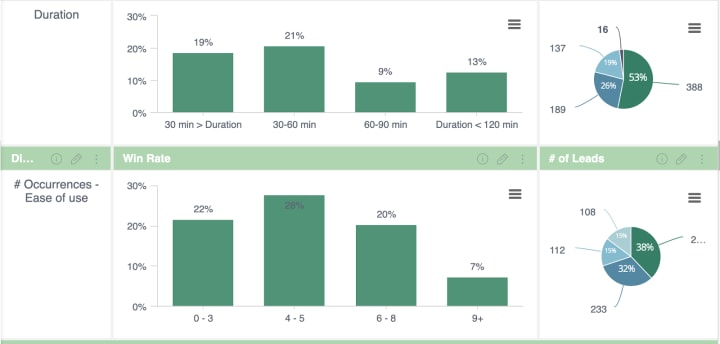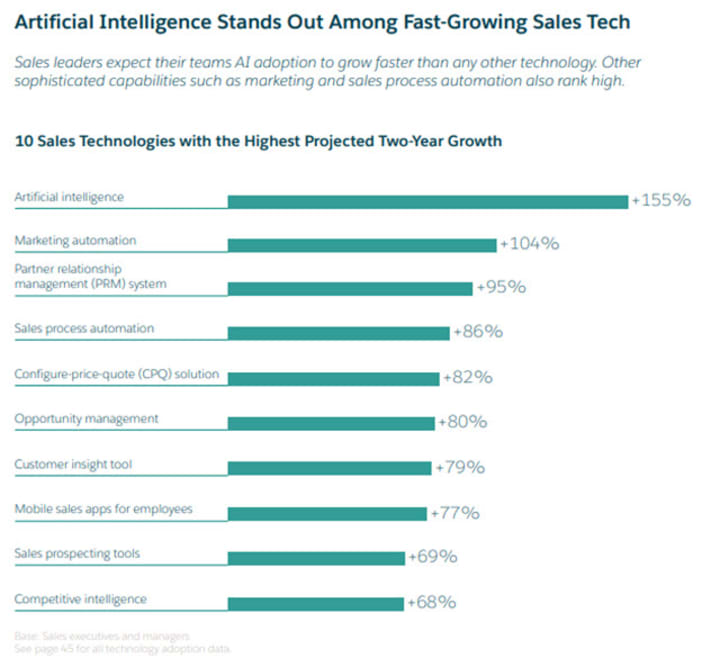
The traditional view of sales is the age-old slimy used car salesman who uses misleading tactics and a heavy hand to pressure you into buying something you probably don’t need. Thankfully, for the most part, sales reps have learned to actively distance ourselves from this stereotype, going out of their way to demonstrate to prospects that we have their best interests in mind.
Going digital is a big part of that equation, as conversations have moved into spaces where trust comes at a premium – and where it can be blown indefinitely with one misstep.
Nowadays, every salesperson’s audience is global. Customers have access to practically unlimited information – and sales teams do, too. The most important tool is no longer the ability to inject urgency into a purchase, but rather the data to understand where, why and how everything inside the sales process is happening, so you can position your offer as a genuine win-win.
By intimately understanding your business’s customers and what factors cause them to successfully complete a sale (or not), you can replicate that success without relying on guesswork. With an eye on the signals that matter, you can know why your customer converted when they did, at what point in their journey, and you can know how to do it again, to scale up your business reliably and sustainably.
The only remaining obstacle is figuring out how to enable sales teams to take advantage of the wealth of information available today. Misattribution and otherwise skewed correlations are to be found around every corner, if you don’t know what you’re doing. Data science can seem intimidating at the outset, especially if there aren’t good tools to display the numbers in an intuitive sense.
How can you cultivate a data-literate sales team?
Your Sales Team’s Data Literacy Isn’t a Stretch
The good news is you don’t have to recruit a team of ex-data scientists to make this happen. While you definitely don’t want to overburden your sales team with gratuitous responsibilities, you should be able to get them data-literate without that being an issue.
I firmly believe everyone loves data, deep down, because it scratches our itch to understand why. Most people have theories about why their world works the way it does, and salespeople are no different.
For instance, if you conduct sales over the phone, you may have a suspicion that shorter calls tend to convert more. By looking at a sales dashboard with data on how many calls you had with a lead, how long the calls were, whether they converted and how much that sale was worth, you can confirm or debunk your suspicion.
Then you can dig further into the data: where do most of that segment of leads come from? What other factors do those winning calls have in common?
Or, to look at another example, perhaps after the fifth call your team has with a lead, the conversion rate drops off a cliff. Referencing your data, this is a pattern that might emerge, and if it’s the case, then you know it may not be worth your time to continue pursuing those leads, and you can make sure you’re working effectively.

To get your sales team data-literate, stop assuming they aren’t interested and start giving them the tools they likely already want. By presenting the numbers in a way that helps get your sales team excited, that gives them the answers to the questions they probably have, you empower them to start asking further questions and feel like they are being put to good use, all of which can lead to an increase in business for your company.
The Sales Promise of True Data Literacy
Today, there’s a huge gap between the information available and ability to use it. There’s also a vast opportunity to be found in that gap. The ability to use data on the circumstances around successful and unsuccessful sales will lead to better informed business decisions, a more invested workforce, and a more effective sales team.
We all want to understand more about the world around us. We all want to satisfy our urge to know more. And we all want to use our time effectively.
Sales teams are exactly the same. Gartner's B2B in 2025 report predicts that 60% of B2B sales organizations will transition from experience- and intuition-based selling to data-driven selling by 2025. Many companies are finding AI to be a major game-changer when it comes to qualifying leads, with more sales leaders citing it as a growth driver than any other type of tech in a recent Salesforce survey.

Indeed, the tools available for data-driven analysis are getting savvier, and there are also more insights available. A sales team that understands and is able to explore that data will be better equipped and more knowledgeable than one that isn’t. Data literacy will lead to more effectiveness throughout the sales team, and a team that is more motivated in what they’re doing.
It also means your team will be better poised to use the new data-based tools that are coming out every year that are helpful to businesses, whether that’s to help them pitch more effectively on the phone or to get sales enablement content assets to surface better in Google search results.
With the ability to see and understand why decisions are being made – and even driving some of those decisions themselves – a data-literate sales team is a benefit for literally every facet of your business.
Final Thoughts
Sales do not happen in a vacuum - behind every decision is a wealth of data that can help you and your sales team understand every part of a customer’s journey. There’s no reason your sales team can’t be empowered to make the most of that information.
Tools exist to help make your sales team data-literate today. The first step is just understanding that most people love data, and are just looking for the right visualizations and data presentation to get them started. The end result is a sales team that is making the most of the abundance of information available on your sales process to improve and understand the customer’s journey to purchase.
Sales aren’t changing, but the way we understand them is. Your sales team should be able to understand and act on the fundamental numbers behind how your business performs.
About the Creator
Myra Sugg
Freelance Ad Media Sales Expert. Scottsdale, Arizona.






Comments
There are no comments for this story
Be the first to respond and start the conversation.